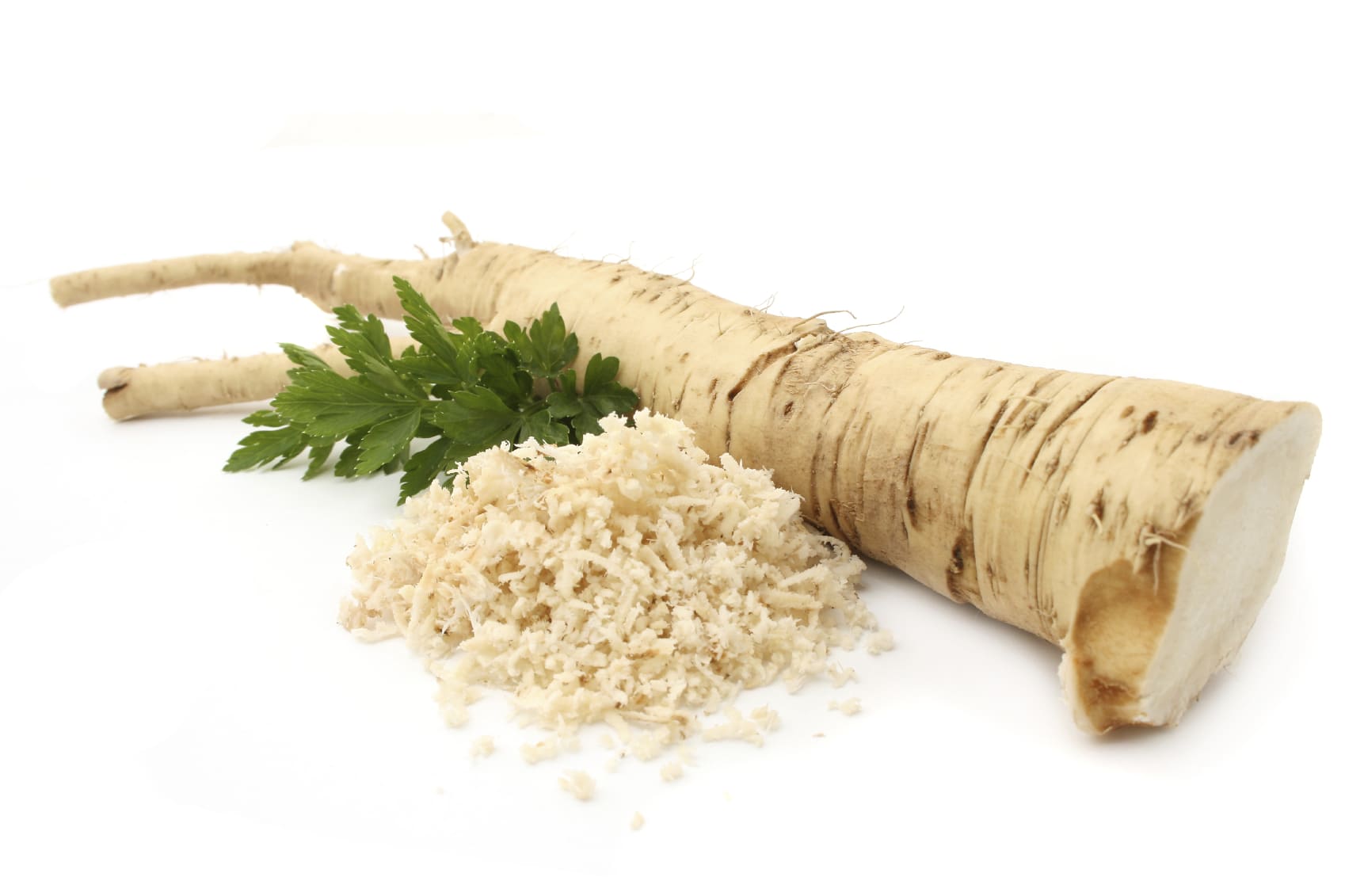When I was growing up, my Zeidy was the king of our Seder. His afikomen was by far the hardest to steal, actually nearly impossible, because he “hid” it in his jacket and guarded it with his life. But what gave him the crown was the fact that he ate freshly grated horseradish as his marror, bitter herbs. That stuff was so potent that just the smell gave me a migraine. My brother ate some one year and spent the rest of the seder laid out on the couch. But my grandfather calmly downed it, smiling serenely as he turned from pink to red to just a shade shy of purple.
Once I got old enough to think about it, I realized the mitzvah of eating marror seems strange for such a joyous night. On a night when we commemorate all the good things G-d did for us, why do we physically remind ourselves of the painful bitterness our ancestors endured in Egypt? And furthermore, what is the idea behind the korech sandwich, in which we eat marror and matzah together? It seems like it could be called the Sandwich of Cognitive Dissonance, as it combines the matzah that represents our redemption with the marror that represents our bitter servitude.
The standard answer usually provided to these questions is that at the Seder we incorporate signs of both the bad that originally happened to our people, and the good that followed it. However, the Sfat Emet (1847-1905), the third Rebbe of the Gerrer dynasty, uses a novel approach to understand these customs. He explains that on the Seder night, the night of national gratitude to G-d for our miraculous redemption, we only commemorate the good things that happened to us. But it is on this night that we understand that our bitter servitude in Egypt was actually a good thing for which we should feel grateful.
The first positive aspect of our slavery was that it prevented our assimilation. Usually, when a small group of people move to a foreign land with a foreign culture, it takes only a few generations before they lose their identity and become lost in the melting pot of their new homeland. The United States is a great example of this phenomenon – most people who have been here for a hundred years or more have melted in, and lost their original language, customs, dress, and, often, even religion in the process. It is in this manner that entire civilizations have disappeared, from the Babylonians, to the Ancient Greeks and Romans. The Jews were in Egypt for over two hundred years, yet they retained their identity because they were not welcomed warmly, but were placed in servitude, an effective, albeit bitter, form of nationality preservative.
Furthermore, says the Sfat Emet, it was during this time that the Jews learned the power of their prayers. “And the children of Israel groaned from the labor, and they cried out, and their cry ascended to G-d from the labor.” (Exodus 2:23) Learning the power of our communication with the divine was an unparalleled gift, as it gave us a skill that to this day is the most powerful tools in our national toolbox.
Lastly, the difficulties we experienced in Egypt were effective at purifying us for our future role as the Chosen People. “But the Lord took you and brought you out of the iron crucible, out of Egypt, to be a people of His possession, as of this day.” (Deut. 4:20). This verse compares our experience in Egypt to the tempering of iron. Although the iron is subjected to extremely high temperatures, it emerges from the process significantly stronger than before. In this way, the bitter slavery in Egypt purified the Jewish people, humbling them and preparing them to become G-d’s people upon their exodus.
Using these new perspectives, we now realize that on the Seder night we actually thank G-d for the bitter slavery as much as we thank him for the miraculous redemption.
The Sfat Emet takes this idea one step further by using it to explain the korech sandwich. The roots for this custom go all the way back to the Torah itself. “They shall eat it with matzos and bitter herbs.” (Numbers 9:11) But the lesson it teaches us is just as relevant today as it was 3,319 years ago when we left Egypt. The korech sandwich, which is made of matzah and marror together, shows us that G-d is just as much involved in the marror as He is in the matzah. Just as we understand that He orchestrated the wondrous exodus on our behalf, we also acknowledge that He orchestrated the bitter slavery on our behalf.
Although we normally have great difficulty intuiting this truth when faced with difficulties, we can often look back and recognize how so many of our greatest challenges were not stumbling blocks, but steps placed in our path to help us climb higher. On the Seder night we thank G-d for every part of our growth, both the matzah and the marror.
Have a Redemptive Pesach!
Leiby Burnham, LMSW, is a rabbi, psychotherapist, and writer. He lives in Detroit with his wife, an ICU nurse, who is on strict orders to “leave her patients at work” and their two daughters, Orah and Shifra. Rabbi Burnham works for the Jean and Theodore Weiss Partners in Torah program of Yeshiva Beth Yehudah, where he does community outreach, and runs a Jewish educational programs at University of Michigan, Wayne State, and Oakland University. He taught learning-disabled high school students for eight years in NYC, while receiving Rabbinical training at Shor Yoshuv Institute, and obtaining his Masters in Social Work from Yeshiva University.
The words of this author reflect his/her own opinions and do not necessarily represent the official position of the Orthodox Union.


